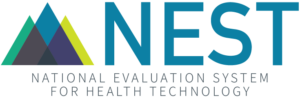Real-World Clinical Outcomes in Patients with Mechanical Heart Valve Replacement and Anticoagulation Variability

- Technology of Interest
Mechanical Aortic Heart Valves
- Disease Area
Cardiology
- Network Collaborators
Vanderbilt, Weill-Cornell
- Duration
14 months
- Status
Complete
Overview
Valvular heart disease affects tens of millions of patients worldwide and is associated with high morbidity and mortality. Symptoms such as fatigue, shortness of breath, and chest pain can also contribute to significant quality-of-life limitations.
Treatment for severe aortic valve disease often includes surgical replacement with a prosthetic heart valve. Mechanical heart valves (MHV) are a type of prosthetic heart valve constructed of durable materials such as titanium or carbon that can potentially last a patient’s lifetime. Despite their high durability, MHV are associated with an increased risk of developing blood clots that may interrupt blood flow and travel to various organs (thromboembolism).
Oral anticoagulation therapy with a vitamin K antagonist (warfarin) is a class I recommendation for patients implanted with an MHV based on the 2014 AHA/ACC Guidelines. The potential protective benefit of anticoagulation therapy against blood clots must be weighed against an increased risk of bleeding in patients with an MHV and adjusting the warfarin dose is necessary to reduce the risk of these complications. The efficacy of warfarin is monitored by measuring how fast the blood clots using a standardized measure called the International Normalized Ratio (INR). Clinical guidelines currently recommend a target INR of 2.0 to 3.0 for patients implanted with a MHV in the aortic position. However, recent data suggest that a lower target INR maintains the anticoagulation benefit while decreasing the risk of bleeding in patients implanted with an MHV in the aortic position.
This Test-Case explored the safety of a reduced target INR in patients implanted with the mechanical valve prosthesis of interest in the aortic position. Retrospective data was drawn from the electronic health records (EHR) and other data sources of participating NESTcc Network Collaborators. Longitudinal outcomes such as hemorrhage, stroke, and mortality were collected to understand the feasibility to determine the risks and benefits of various anticoagulation strategies for MHV patients.
Insights drawn from this Test-Case have the potential to impact long-term clinical care and outcomes for patients implanted with an MHV. In addition, this Test-Case assessed the feasibility of linking various sources of existing Real-World Data (RWD) to study longitudinal patient outcomes.
Case Study
Download a case study that takes a closer look at this Test-Case, a real-world data feasibility study that evaluated anticoagulation variability in patients implanted with aortic valves.
NEST RWE FORUM PRESENTATION
Watch the Test-Case research team’s presentation from the NEST RWE Forum on May 20, 2021.
